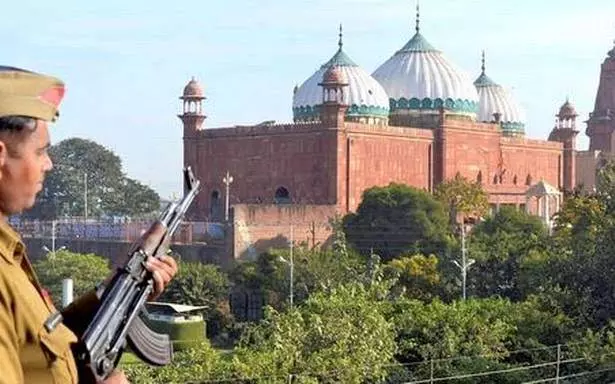
Supreme Court blocks survey of Shahi Idgah Mosque in Mathura
text_fieldsThe Supreme Court has intervened to temporarily halt an order from the Allahabad High Court permitting a court-monitored survey of the historic 17th-century Shahi Idgah Mosque in Mathura, Uttar Pradesh.
The decision, akin to the survey conducted at Varanasi's Gyanvapi Mosque, has ignited a legal battle between the Hindu and Muslim communities.
The bench of Justices Sanjiv Khanna and Dipankar Datta expressed reservations about the "vague" application submitted to the high court, questioning the lack of specificity in the purpose of the survey.
The Supreme Court emphasized that applications for the appointment of a court commissioner should be explicit and not leave everything for the court to decipher.
At the heart of the matter is a petition filed by the Muslim side challenging the high court's decision to allow the survey of the mosque. Hindu groups argue that the mosque was constructed on the purported birthplace of Lord Krishna and have long called for a survey to substantiate their claim.
The legal dispute traces back to a local court's acceptance of the demand for a survey in December of the previous year. The Muslim side, however, objected and took the matter to the high court, citing the Places of Worship Act of 1991. This legislation maintains the religious status of any place of worship as it existed on August 15, 1947, the day India gained independence.
The Hindu petitioners, seeking complete ownership of the contested 13.37 acres of land, assert that the centuries-old mosque was built by demolishing the Katra Keshav Dev temple, allegedly ordered by the Mughal emperor Aurangzeb.
To support their claim, the Hindu side points to carvings of lotuses on the mosque's walls and shapes resembling 'sheshnag,' the snake demigod in Hindu mythology.
The Supreme Court's intervention adds a new layer to the contentious legal battle, with both sides preparing to present their arguments in the coming hearings.





